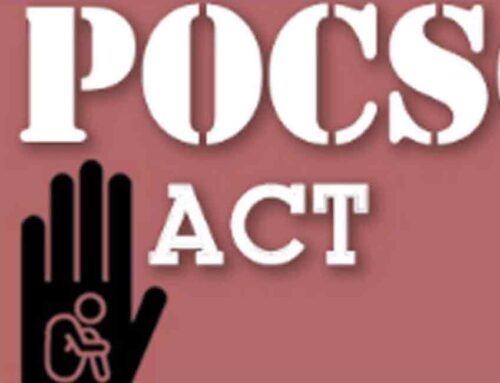– Abul Kalam Azad Sulthan, Advocate, High Court of Judicature at Madras and Madurai Bench of Madras High Court & Partner, Spicy Law Firm.
With the rise of global financial crimes and illicit activities, coordinating with international agencies is imperative to effectively combat cross-border money laundering. Understanding the importance of sharing information and working together across borders is crucial in detecting and preventing illegal financial transactions that threaten the stability of economies worldwide. In this blog post, you will learn about the significance of collaboration with international entities in the fight against money laundering and how it plays a vital role in maintaining the integrity of the financial system.
Key Takeaways:
- Collaboration: Collaborating with international agencies is crucial to effectively combat cross-border money laundering.
- Information Sharing: Sharing information and intelligence with other countries can help in tracking and stopping illicit financial flows.
- Regulatory Alignment: Aligning regulatory frameworks across borders can make it easier to investigate and prosecute money laundering activities.
The Threat of Cross-Border Money Laundering
For decades, the world has faced the relentless growth of global financial crimes, particularly money laundering. Criminal organizations and individuals exploit the interconnectedness of the global financial system to move illicit funds across borders with ease. This rise in cross-border money laundering poses a significant threat to the stability and integrity of financial markets worldwide.
The Rise of Global Financial Crimes
To understand the gravity of the situation, you must recognize the increase in sophisticated methods used by criminals to launder money. From shell companies to virtual currencies, the arsenal available to money launderers is vast and continually evolving. As financial transactions become more complex and difficult to trace, authorities face a daunting challenge in detecting and preventing illicit activities.
Moreover, the globalization of trade and finance has created opportunities for criminals to exploit regulatory disparities between countries. Weak anti-money laundering (AML) measures in one jurisdiction can be leveraged to facilitate illicit financial flows, making cross-border transactions an attractive option for money launderers seeking to hide the origins of their funds.
Consequences of Unchecked Money Laundering
Cross-border money laundering not only undermines the integrity of the financial system but also fuels other criminal activities such as drug trafficking, terrorism financing, and corruption. The unchecked flow of illicit funds across borders perpetuates a cycle of crime and instability, posing a serious threat to global security and prosperity. If left unchecked, this phenomenon can have devastating consequences for economies and societies worldwide.
Money laundering schemes can have far-reaching effects, leading to reputational damage for financial institutions and eroding public trust in the integrity of the financial system. Furthermore, the profits generated from money laundering often fund additional criminal activities, perpetuating a vicious cycle of illicit financing that poses a direct threat to the rule of law and national security.
The Role of International Agencies
Cooperation and Information Sharing
Some of the most critical aspects of combating cross-border money laundering involve cooperation and information sharing between international agencies. In order to effectively track and prevent illicit financial activities that transcend national boundaries, it is vital for agencies to work together seamlessly. This cooperation allows for the pooling of resources, expertise, and intelligence, creating a more comprehensive and coordinated approach to combating money laundering.
On top of that, information sharing is key in identifying patterns and trends in money laundering schemes. By exchanging data and intelligence on suspicious transactions and individuals involved in illicit activities, international agencies can build a clearer picture of the financial networks at play. This collaborative effort not only aids in detecting and preventing money laundering but also in prosecuting offenders more effectively.
Furthermore, through cooperation and information sharing, international agencies can develop common strategies and protocols for investigating and combating cross-border money laundering. By aligning their efforts and resources, these agencies can maximize their impact and strengthen their ability to disrupt and dismantle illicit financial networks operating on a global scale.
Joint Investigations and Enforcement
To enhance the effectiveness of combating cross-border money laundering, international agencies often engage in joint investigations and enforcement actions. By combining their forces, agencies can conduct more thorough and coordinated investigations that transcend national jurisdictions. This approach is particularly crucial in cases where money laundering schemes involve actors and transactions in multiple countries.
Joint investigations enable international agencies to share not only information but also operational resources, such as surveillance capabilities and forensic expertise. This pooling of resources enhances the agencies’ ability to uncover complex money laundering schemes and gather the evidence necessary for successful prosecution. Additionally, joint enforcement actions send a strong message to money launderers that illicit activities will not go unpunished and that international cooperation poses a formidable challenge to their operations.
International agencies often establish task forces and working groups dedicated to specific regions or types of money laundering activities. Through these specialized units, agencies can focus their efforts on high-priority cases and engage in targeted enforcement actions that disrupt illicit financial flows. By collaborating in joint investigations and enforcement operations, international agencies can effectively tackle the transnational nature of money laundering and protect the integrity of the global financial system.
Challenges and Opportunities
Despite the efforts to coordinate with international agencies, combating cross-border money laundering comes with several challenges and opportunities. One of the main obstacles faced is the jurisdictional issues and conflicting laws among different countries.
Jurisdictional Issues and Conflicting Laws
With the complexities of multiple jurisdictions involved in money laundering cases, it can be challenging to determine which country has the authority to investigate and prosecute these crimes. Conflicting laws and regulations further complicate matters, as what may be legal in one country could be considered illegal in another. This lack of harmonization can create loopholes that money launderers exploit to evade detection and punishment.
Moreover, the differences in legal systems and levels of enforcement between countries can hinder effective collaboration. **Your** challenge lies in navigating these jurisdictional issues and working towards aligning international laws to streamline cross-border investigations and prosecutions.
Technological Advancements and Data Analysis
Technological advancements have provided both challenges and opportunities in the fight against cross-border money laundering. **Technological** solutions such as blockchain and cryptocurrencies have made tracking illicit financial transactions more difficult. However, these same technologies also offer opportunities for improving transparency and traceability in financial transactions.
With the right tools and expertise, **you** can leverage data analysis to detect patterns and anomalies indicative of money laundering activities. Harnessing big data and artificial intelligence can enhance your ability to identify suspicious transactions across borders and uncover intricate money laundering schemes.
Data: In combating cross-border money laundering, data analysis plays a crucial role in uncovering illicit financial activities. By utilizing advanced analytics and machine learning algorithms, you can sift through vast amounts of financial data to pinpoint suspicious patterns and connections that may otherwise go unnoticed. This proactive approach enables **you** to stay ahead of money launderers and disrupt their operations effectively.
Effective Strategies and Solutions
Once again,
Implementing Uniform Regulations and Standards
On your quest to combat cross-border money laundering, implementing uniform regulations and standards is crucial. Uniform regulations and standards ensure that there is consistency and transparency in the financial systems across borders. By harmonizing these regulations, it becomes more challenging for money launderers to exploit regulatory gaps in different jurisdictions. Standardizing regulations also facilitates information sharing and cooperation between international agencies, making it easier to track illicit financial flows.
Furthermore, by implementing uniform regulations and standards, you create a strong deterrent against money laundering activities. Knowing that the same stringent regulations apply globally makes it harder for criminals to find safe havens to launder their illicit funds. This consistency sends a clear message that money laundering will not be tolerated anywhere, thereby reducing its prevalence and impact.
In addition, uniform regulations and standards help enhance the reputation of the financial sector and the overall economy. When investors and the public see that robust anti-money laundering measures are in place worldwide, it boosts confidence in the financial system and encourages legitimate economic activities to flourish.
Capacity Building and Technical Assistance
Assistance in the form of capacity building and technical support is important in the fight against cross-border money laundering. Capacity building initiatives help countries strengthen their institutions, regulatory frameworks, and human resources to effectively detect and prevent money laundering activities. By providing training and resources, international agencies can empower countries to build their expertise and capabilities in combating financial crimes.
Capacity building and technical assistance also foster collaboration and knowledge sharing among countries. Through workshops, seminars, and exchange programs, professionals from different jurisdictions can learn from each other’s experiences and best practices. This exchange of information is invaluable in staying ahead of evolving money laundering techniques and trends.
Capacity building and technical assistance are long-term investments in the global fight against money laundering. By equipping countries with the necessary tools and knowledge, international agencies contribute to creating a more resilient and coordinated international response to this transnational threat.
To wrap up
Upon reflecting on the importance of coordinating with international agencies to combat cross-border money laundering, you can see how vital it is to work together on a global scale. With the interconnected world we live in today, criminals can easily exploit loopholes in different countries’ financial systems to launder their illicit funds. By collaborating with international agencies, you can strengthen your country’s defenses and prevent money laundering activities from slipping through the cracks.
Be mindful of, money laundering not only undermines the integrity of financial systems but also fuels other criminal activities such as drug trafficking, terrorism, and human trafficking. By joining forces with international agencies, you are not only protecting your country’s financial stability but also contributing to the global fight against organized crime. Your efforts towards coordination and information sharing will ultimately help in creating a safer and more secure world for everyone.
In summarization, the battle against cross-border money laundering requires a united front. By coordinating with international agencies, you are amplifying your country’s efforts and leveraging resources from around the world. Stay vigilant, stay informed, and continue working together to stay one step ahead of those seeking to exploit financial systems for their criminal gains. Your dedication to this crucial cause will make a significant impact in safeguarding our economic systems and communities from the detrimental effects of money laundering.
Q: What is cross-border money laundering?
A: Cross-border money laundering refers to the illegal process of disguising the origins of money obtained through criminal activities in one country and transferring it to another country for the purpose of legitimizing the funds.
Q: Why is coordinating with international agencies important to combat cross-border money laundering?
A: Coordinating with international agencies is crucial to combat cross-border money laundering because criminal activities often span multiple countries, requiring a collaborative effort among law enforcement agencies worldwide to effectively track, investigate, and prosecute money laundering activities.
Q: How do international agencies work together to combat cross-border money laundering?
A: International agencies combat cross-border money laundering through information sharing, joint investigations, and coordination of efforts to enforce anti-money laundering laws and regulations. They may also provide training and support to enhance the capacity of countries to detect and prevent money laundering activities.







Leave A Comment